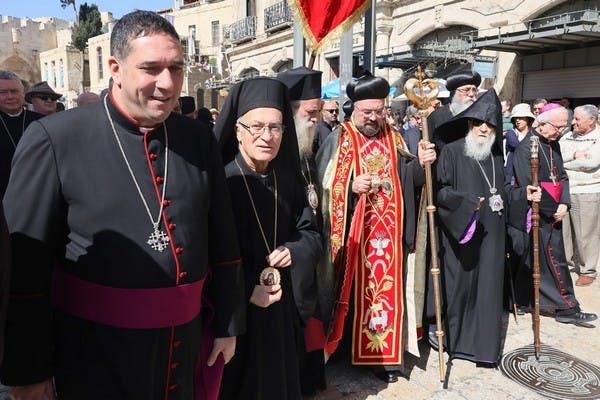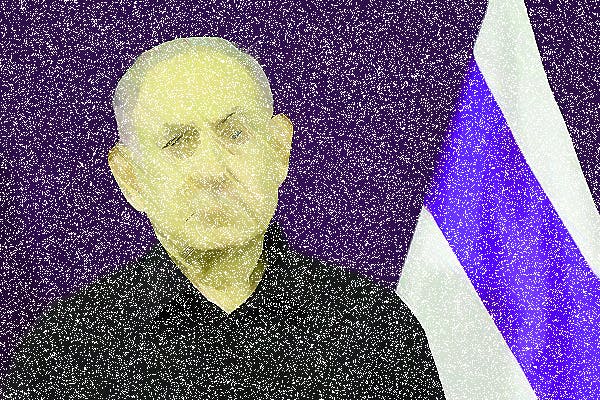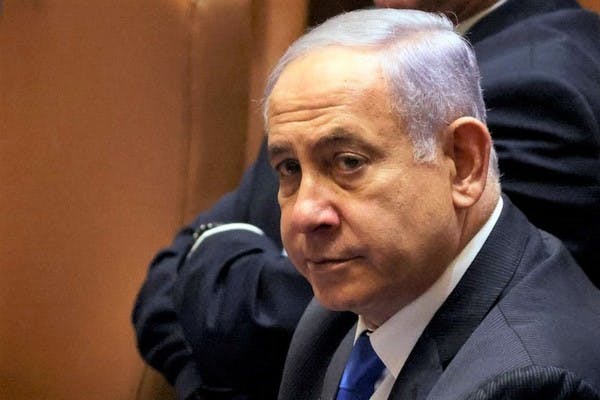Published: 4 January 2024
Last updated: 5 March 2024
A free and open press is essential in holding power to account, especially during times of conflict, but there is growing concern about the erosion of these principles in Israel.
Updated 12 February 2024
Coverage of the Israel-Hamas war has been a fraught exercise for many publications around the world, but perhaps none more so than in Israel itself.
Military censorship and the instability of the Netanyahu government saw Israel fall 11 places in the World Press Freedom Index in 2023. The country is also emerging as one of the world’s leading jailers of journalists, according to the New York Based Committee to Protect Journalists.
This outcome can be attributed to a multifaceted mix of journalistic self-censorship, government interference and Israel's political shift towards the right.
The war is unfolding on Israelis' screens through straightforward, unquestioning reporting of the Israeli military's official accounts, plus a daily press briefing by military spokesman Rear Admiral Daniel Hagari.
Coverage downplays critical questions that have arisen during the conflict, such as how much the ground maneuver endangers the lives of the hostages in Gaza. The deaths of thousands of Palestinian civilians in Gaza are ignored, the resultant famine, thirst, displacement and lack of medical care is notably absent, and only a few on-air voices challenge the establishment's perception.
Oren Persico — staff writer at The Seventh Eye, an independent investigative magazine focused on media and freedom of speech in Israel — told ABC RN Drive that ordinary Israeli citizens are less informed about the Israel-Hamas war than Australians.
"We do see the military operation in Gaza, but we don't see the human cost... on the Gazan population. We don't see wounded or killed children and women. We mostly see Israeli soldiers exploding buildings and streets turned into rubble. There's almost no coverage of the human cost of the war on the Gazan side," Persico said.
Some media analysts have warned that this absence is shaping Israeli public opinion. A poll released by Tel Aviv University's Peace Index and the Israel Democracy Institute in mid-November showed that a majority of Israeli Jews (57.5%) believed Israeli forces were using insufficient firepower in Gaza, while another 36.6% thought the military was using the correct amount of force, and just 1.8% thought it was using too much.
"Avoiding almost completely the [crimes] being acted in [Israel's] name is really unfortunate because the Israelis don't get the whole picture of what's going on here."
Oren Persico
These numbers held stable in mid-January, even as the death toll in Gaza has continued to climb, prompting more international calls for Israeli restraint.
"I think the journalists in Israel believe that showing the human cost of the war on the Gazan population would somehow diminish the support for the war in the Israeli public," Persico added.
"Avoiding almost completely the [crimes] being acted in [Israel's] name is really unfortunate because the Israelis don't get the whole picture of what's going on here."
Rami Younis, a Palestinian filmmaker and journalist, told Jewish Currents that “the entire Israeli population has moved more to the right [since October 7], and that is mainly because of the media. The louder you shout that Gaza must be obliterated, the more likely it is that you’ll get featured on TV panels.”
A signal of self-censorship
The Israeli media landscape is marked by endless forms of self-censorship.
Journalists and media researchers fear that Israeli broadcasting is returning to bad habits as part of an effort to lift morale and maintain solidarity with soldiers risking their lives in Gaza – and, in doing so, is failing to show the reality of the war.
"There are no explicit instructions, but there's this kind of vibe that allows no place for stories of Gazan victims in the news broadcasts," says a reporter for a leading news channel. "This is a surrender to the public mood, one that says that after such a great disaster, you shouldn't 'give the enemy an opportunity'.
"The problem is that this is detrimental to the role of the journalist because viewers get used to not treating the other side as human beings and then don't understand why the whole world, which sees the difficult images from Gaza, turns its back on us and treats Israel as the aggressor."
But to some close observers of the Israeli political landscape, the question of whether the media is molding public opinion or simply reflecting it is not straightforward.
Raviv Drucker, an Israeli political commentator and investigative reporter, said choices are being made on both sides.
“People don’t want to see [Gazans’ suffering] and the media doesn’t want to show it," he told Jewish Currents.
“This is a state in post-trauma. If you stop an Israeli on the street, they know that thousands of children are dying in Gaza. It’s not a lack of understanding; it’s a lack of empathy. An unwillingness to participate in their pain.”
READ MORE
How Israeli media became a wartime government propaganda arm (Haaretz)
What the Israeli public doesn’t see (Jewish Currents)
RELATED PODCAST
'Israelis don't see images from Gaza because our journalists are not doing their job' (Haaretz)




